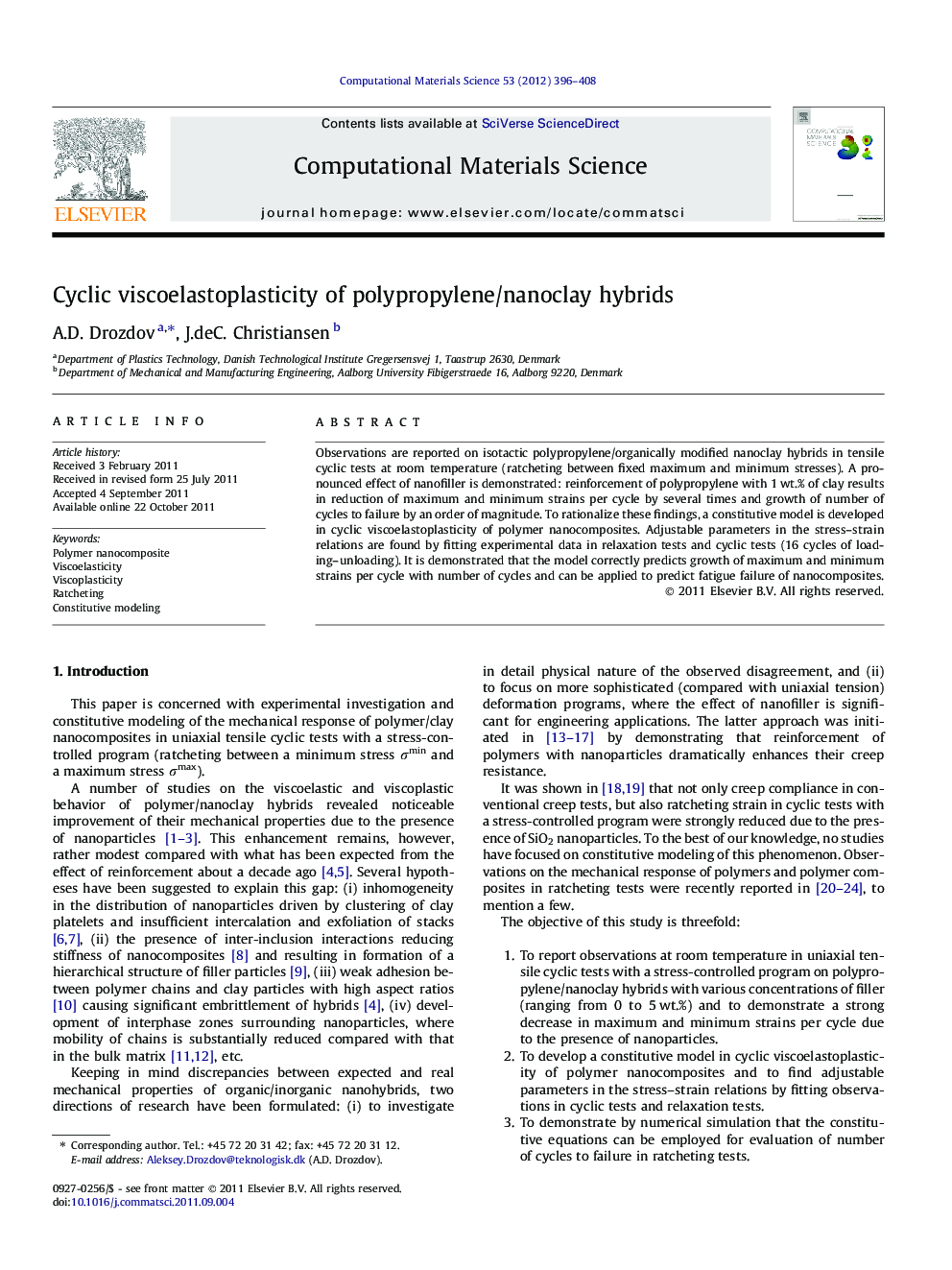| Article ID | Journal | Published Year | Pages | File Type |
|---|---|---|---|---|
| 1561916 | Computational Materials Science | 2012 | 13 Pages |
Observations are reported on isotactic polypropylene/organically modified nanoclay hybrids in tensile cyclic tests at room temperature (ratcheting between fixed maximum and minimum stresses). A pronounced effect of nanofiller is demonstrated: reinforcement of polypropylene with 1 wt.% of clay results in reduction of maximum and minimum strains per cycle by several times and growth of number of cycles to failure by an order of magnitude. To rationalize these findings, a constitutive model is developed in cyclic viscoelastoplasticity of polymer nanocomposites. Adjustable parameters in the stress–strain relations are found by fitting experimental data in relaxation tests and cyclic tests (16 cycles of loading–unloading). It is demonstrated that the model correctly predicts growth of maximum and minimum strains per cycle with number of cycles and can be applied to predict fatigue failure of nanocomposites.
► Reinforcement strongly reduces ratcheting strain in polypropylene/nanoclay hybrids. ► A constitutive model is derived for lifetime evaluation under fatigue conditions. ► Only 1 wt.% of nanoclay is sufficient to increase number of cycles to failure by an order of magnitude.
